Humans
-
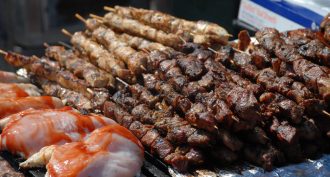 Health & Medicine
Health & MedicineLow protein, longer life — for some
Eating less protein can lengthen life and improve health. That’s the message from new studies in mice and in people.
-
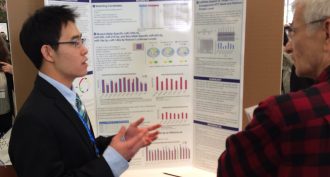 Health & Medicine
Health & MedicineTeen uncovers new weapons to stop Huntington’s disease
David Seong, an Intel Science Talent Search finalist, is studying how tiny pieces of genetic material might be used to lock up a dangerous protein in Huntington’s disease.
-
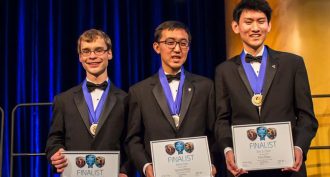 Computing
ComputingTeen wins $100,000 for flu advance
Forty talented high-school seniors competed in the 2014 Intel Science Talent Search this week, sharing $630,000 in prizes. Top prize went to a teen for his new approach to fighting flu.
By Sid Perkins -
 Health & Medicine
Health & MedicineTeen finds the ‘shape’ of our beating hearts
Kevin Lee used math to probe how the shape of a beating heart relates to electrical signals from the brain. He unveiled it at the 2014 Intel Science Talent Search.
-
 Health & Medicine
Health & MedicineIntel STS finalist finds new flu fighters
Intel Science Talent Search finalist Eric Chen used a computer simulation to narrow down chemical targets to fight influenza. The drugs that he identified could be the next big weapons against flu.
-
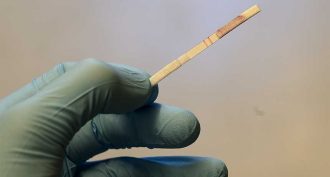 Health & Medicine
Health & MedicineSimple test for cancer and heart disease
Disease diagnosis often requires expensive equipment and tests to probe deep inside the body. But a new test relies on a fast, cheap and easy technique. And its answers appear on a strip of paper — just as they do on a pregnancy test.
-
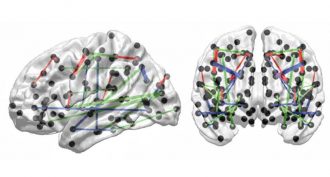 Brain
BrainMapping the brain’s highways
A new map may explain why some brain injuries are worse than others. Even relatively minor injuries that disrupt message superhighways may have a more devastating impact than some seemingly catastrophic injuries.
-
 Health & Medicine
Health & MedicineWhen a nut allergy comes back
Eating small amounts of peanuts may help people overcome an allergy to the food. But for most people undergoing the treatment, its benefits vanish after they stop eating peanuts.
-
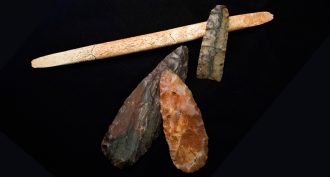 Genetics
GeneticsWhere Native Americans come from
All tribes seem to derive from the same Asian roots, DNA indicates.
-
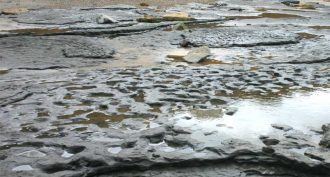 Archaeology
ArchaeologyAncient footprints surface in Britain
There are hints they could have been made by ancestors of Neandertals.
By Bruce Bower -
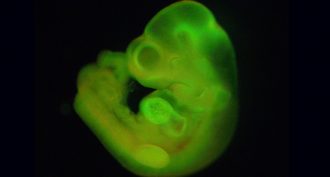 Life
LifeHow to reset a cell
Scientists had reported they had figured out how to turn a specialized cell into any other type of cell the body may need. All it took was an acid bath. But now in July, big doubts have emerged about the quality of that work and whether the results will hold up.
-
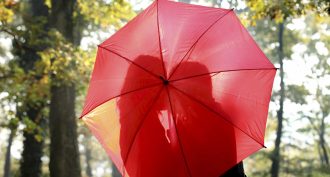 Brain
BrainWhen Cupid’s arrow strikes
Scientists have begun dissecting what it means to be in love. They are finding that much of what we feel can be explained by the effects of a few key chemicals — and not just on our hearts and brains, but on our whole bodies.
By Susan Gaidos